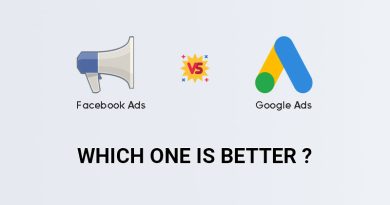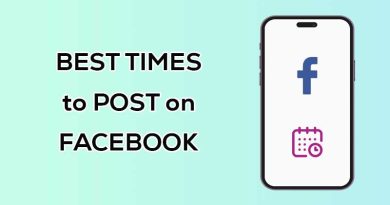How to use Facebook Groups to Build Community for your Brand
One of the main goals of any business is to keep its loyal customers who buy from that brand often. Facebook groups are a great way to build a loyal community of customers and help brands build stronger and more effective relationships with their customers.
On the other hand, building a strong community will also help your brand reputation. This will lead to more people searching for your brand name on Google, and your organic traffic will increase.
If you plan to use the potential of Facebook groups for your business, you are in the right place. In this article, we will first introduce Facebook groups and their benefits for businesses; then, we will show you five essential tips about using them for your business.

What are Facebook groups, and why should businesses use them?
Facebook groups are an interactive platform on Facebook where users discuss specific topics. While Facebook pages create a one-way connection with the audience, users can discuss and share content with others by joining groups.
Facebook groups are an excellent tool for building online communities. Online communities help brands to better connect with their customers and increase brand loyalty. Additionally, online communities help brand owners understand what people think about their brand or products, learn about their product’s strengths and weaknesses, and engage more with customers.
Search engines like Google and Bing monitor Facebook groups and index their content. Another important advantage of Facebook groups is to improve SEO and increase organic traffic to your website. Every time a user shares a link to your website or a link to one of the products on your website in a Facebook group, a backlink to your website is created. Backlinks are among the most important search engine factors that make your website rank higher in search engine results.
5 essential tips on how businesses can use Facebook Groups
1. Determine the rules and regulations of the group
Although Facebook groups are a great place for people to interact, they are also suitable for spamming. Dissemination of spam and disorder in your Facebook group can affect customers’ perception of your brand.
To prevent the spread of spam and disorder in your group, clearly communicate your rules and expectations to the group members. You should also constantly monitor your Facebook group to penalize people who don’t follow the group rules.
2. Enter the group details carefully
Enter specific and relevant details for your Facebook group so users can easily find it.
Use the appropriate name and description: Choose a short and proper name and description for your Facebook group so that users can familiarize themselves with the topic and goals of your group.
Use tags: Using relevant tags will help users discover your group better.
Use keywords: Using keywords in the group’s name and description can help it be seen better in search results.
Use appropriate images: Use a profile image and cover image relevant to the group’s topic to accurately reflect the purpose and appeal of the group to the audience.
3. Increase group member engagement
To increase the engagement of group members, you can:
Prioritize discussions daily: You can bring up a different topic in the group every day and encourage members to discuss it.
Create a poll: By creating a poll in your Facebook group, you can better understand the opinions and preferences of group members.
Respond to members’ questions immediately: This increases the participation and interaction of group members and shows them that their opinions and messages are important to you.
Share the group link: Share the group link on other social media so that more people can join it. Also, if you have a website for your business, you can share the group link with your website visitors.
Thank active members: Give thanks to active members by highlighting their posts, comments, or achievements in the group.
Encourage group members to invite friends to join the group: Ask group members to invite others to join your group. You can also encourage members to do so by awarding prizes.
4. Do not use your group for direct sales
Your Facebook group should be a place for discussion, not just to advertise and sell your products! Users also usually join Facebook groups to participate in conversations and discussions, and they certainly won’t join a group filled with sales ads.
Of course, this does not mean that you should never promote your products in the group. Instead, you should do it smartly and optimally not to upset the group members. If you advertise a product in the group, it is better to explain to the members why you are sending advertisements. For example, explain that your product is 50% off.
5. Create a private Facebook group for your business
As we explained earlier, spam can be the bane of your Facebook group. So, to have a successful group with actual members, it is better to keep it private.
When your group is private, people can join it only with your approval. This way you can keep an eye on who is joining the group and ensure they are joining for the right reasons.
Frequently asked questions
How can I create a private group on Facebook?
You can create a private group on Facebook by following the steps below:
1. Go to your profile on Facebook.
2. Click on Groups.
3. Click the Create Group button.
4. Select the Privacy option as Private.
5. Enter the name of the group and its description.
6. Choose who can join your group.
7. Click on the Create Group button.
How can I limit who’s entering my Facebook group?
You can set it so that users can join the group only with the approval of administrators or moderators. To do this, follow the steps below:
1. Go to your Facebook group.
2. Click the three dots at the top of the screen, and then click Edit Group Settings.
3. select the Only admins and moderators option in the Membership Approval section.
What are the differences between public, private, and hidden Facebook groups?
Public groups: Users can join your group without admin approval. Also, anyone can post or comment and see your group members. Additionally, public groups are displayed in Facebook search results.
Private groups: These types of groups allow you to have more control over group members. Users can join the group only with the approval of group administrators and supervisors. Also, group members can see the posts and comments within the group and the list of members. Only the name and description of the group are displayed in the search results, and the group’s content is not shown in the search results.
Hidden groups: These types of groups have all the features of private groups except that they are not displayed in search results. Users must be given a direct URL to join and access the group.



